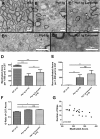Curcumin therapy in a Plp1 transgenic mouse model of Pelizaeus-Merzbacher disease
- PMID: 26339673
- PMCID: PMC4554440
- DOI: 10.1002/acn3.219
Curcumin therapy in a Plp1 transgenic mouse model of Pelizaeus-Merzbacher disease
Abstract
Objective: Pelizaeus-Merzbacher disease (PMD) is a progressive and lethal leukodystrophy caused by mutations affecting the proteolipid protein (PLP1) gene. The most common cause of PMD is a duplication of PLP1 and at present there is no curative therapy available.
Methods: By using transgenic mice carrying additional copies of Plp1, we investigated whether curcumin diet ameliorates PMD symptoms. The diet of Plp1 transgenic mice was supplemented with curcumin for 10 consecutive weeks followed by phenotypical, histological and immunohistochemical analyses of the central nervous system. Plp1 transgenic and wild-type mice fed with normal chow served as controls.
Results: Curcumin improved the motor phenotype performance of Plp1 transgenic mice by 50% toward wild-type level and preserved myelinated axons by 35% when compared to Plp1 transgenic controls. Furthermore, curcumin reduced astrocytosis, microgliosis and lymphocyte infiltration in Plp1 transgenic mice. Curcumin diet did not affect the pathologically increased Plp1 mRNA abundance. However, high glutathione levels indicating an oxidative misbalance in the white matter of Plp1 transgenic mice were restored by curcumin treatment.
Interpretation: Curcumin may potentially serve as an antioxidant therapy of PMD caused by PLP1 gene duplication.
Figures




References
-
- Mobius W, Patzig J, Nave KA, Werner HB. Phylogeny of proteolipid proteins: divergence, constraints, and the evolution of novel functions in myelination and neuroprotection. Neuron Glia Biol. 2008;4:111–127. - PubMed
-
- Saugier-Veber P, Munnich A, Bonneau D, et al. X-linked spastic paraplegia and Pelizaeus-Merzbacher disease are allelic disorders at the proteolipid protein locus. Nat Genet. 1994;6:257–262. - PubMed
-
- Cailloux F, Gauthier-Barichard F, Mimault C, et al. Genotype-phenotype correlation in inherited brain myelination defects due to proteolipid protein gene mutations. Clinical European Network on Brain Dysmyelinating Disease. Eur J Hum Genet. 2000;8:837–845. - PubMed
-
- Hobson GM, Garbern JY. Pelizaeus-Merzbacher disease, Pelizaeus-Merzbacher-like disease 1, and related hypomyelinating disorders. Semin Neurol. 2012;32:62–67. - PubMed
LinkOut - more resources
Full Text Sources
Other Literature Sources

